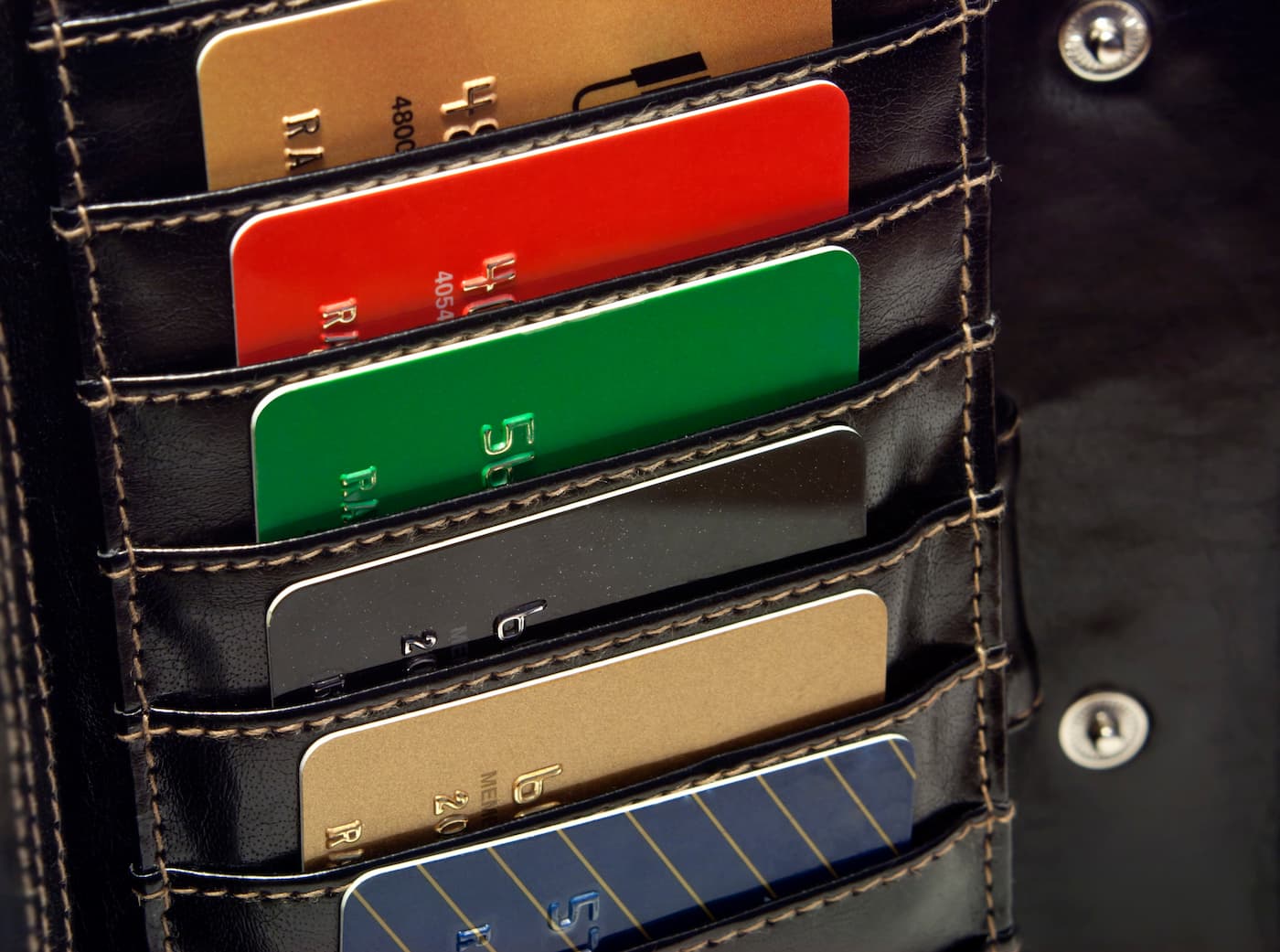8 different types of credit cards for businesses and consumers
Editorial Team
6 min read
There are hundreds of credit cards available to consumers and businesses from different credit card brands, banks, and affiliate brands. With so many choices, it would seem like it wouldn’t make sense to keep introducing new types of credit cards, but they can appear often with new promotions and features.
Asking the question of why so many different kinds of credit cards can be answered in one sentence: the more types of credit cards, the more likely to meet the financial needs of consumers and businesses. One or more of the options could appeal to their interests, needs, or qualifications. Credit card companies also hope you will end up with more than one card, as research shows the average American has two to three credit cards. Additionally, data is being tracked from credit card histories to better understand consumer purchasing behavior.
When the first bank-issued cards became available, there were just very simple credit cards with one set of features as well as a standard usage fee rate and set of qualification criteria. However, with the ups and downs of the economic environment, credit card companies found that many no longer qualified for credit cards or they were not interested.
Eventually, things began to shift, and customers started seeking products and services that aligned with their preferred lifestyle and financial situation.
Credit card companies caught on to the idea and started introducing credit cards that offer multiple interest rate tiers, less fees, and, most importantly, rewards programs that deliver the additional value and incentives that many need to be convinced to apply for a credit card.
Types of credit cards
Here’s a brief rundown of the various types of credit cards, as well as the criteria you can use to help determine which kind might work for you and your business.
Standard cards
These credit cards are available from banks and financial institutions and are considered unsecured, so you don’t have to put down a security deposit in order to have one. You can opt for balance transfer credit cards to move other debt to these cards as a consolidation strategy. There are also low interest credit cards with a small introductory annual percentage rate that gets you to apply, but it can change after a set number of billing cycles.
Secured cards
Secured credit cards are designed for consumers with little to no credit or poor credit. They require some type of security deposit in order to be issued, and the limits are typically equal to the amount of money the consumer puts down. This card can be a good way for consumers to build up their credit score.
Rewards cards
Reward programs come in nearly every variety under the sun, including cash back rewards with a percentage back based on your purchase amounts; points cards where you can accumulate points to get other merchandise; retail rewards points; and gas credit cards with options for points or rebates on gas purchases. Many companies have introduced these credit cards as a means of improving loyalty to their brand.
Store brand cards
These closed loop cards are limited to use at only specific retail stores and/or gas stations. These cards can also come with certain perks that enable users to choose special financing options if a certain amount is spent on a single purchase, or select a cash-back rebate option.
Fleet or fuel cards
These types of credit cards are generally used by businesses that support a fleet of vehicles to perform business operations. They enable employees to purchase fuel and pay for vehicle maintenance at an authorized network of gas stations and auto repair shops. Fleet cards help make it easier for businesses to control driver spend and fuel expenses.
Travel cards
Similar to rewards cards, these credit cards are co-branded with various airline, hotel, cruise, and rental car travel brands to win loyalty. Many of these include perks beyond miles or free nights, including upgrade to a higher travel class, priority boarding, exclusion from ancillary fees, discounts on guests, etc.
Purchasing or procurement cards (P-cards)
A P-card is a type of business credit card that allows employees to pay for goods and services electronically without having to go through a formal purchasing request or approval process. This card type can help save your staff time by streamlining the procurement process for smaller purchases. A P-card program can also come with features like reports to allocate expenses, special business rewards, and higher credit limits.
Student cards
Before you send your student off to college, you may want to consider applying for a credit card for emergency expenses. These specialized cards typically come with lower interest rates, but can help your student learn responsibility while building their credit.
How to select a credit card type
Some of the credit cards in the list may fit your needs, while others may require more research. For example, there are certain consumers and businesses who are considered non-revolvers. They pay their credit card balances in full each time they get a statement with a balance due.
Revolvers carry a balance and may just make the minimum payment or just above, which could lead them to have to pay interest charges on the balance they carry over each month. There are some credit cards users that do both, choosing to pay off one balance while carrying a balance on another card.
When deciding to shop for a credit card, remember to consider the following things:
- Think about why you’re getting a credit card and determine how you can make it work to your benefit (earn points, rack up miles, build credit, pay down debt faster)
- Determine the interest rate and whether it is fixed or variable. Also, find out if different interest rates are charged for cash advances, purchases, and balance transfers
- See if there is an annual fee and whether this can be waived
- Assess the grace period time on payment, which typically can range from 20 to 30 days
- Make sure you are in a position to be financially responsible to help avoid getting yourself or your business into debt
Other articles you may like
- Credit cards vs debit cards: Pros, cons, and security concerns
- How should you fund your small business? Here’s how to choose.
- March is National Credit Education Month
This information is provided for informational purposes only and should not be construed as legal, financial, or tax advice. Readers should contact their attorneys, financial advisors, or tax professionals to obtain advice with respect to any particular matter.
Related Posts
What is Point-to-Point Encryption (P2PE)?
How to help detect and prevent merchant account fraud
Popular Topics
Stay in touch
Sign up and learn more about Clover.
Thank you for your subscription!
More posts about starting a small business
eBook
Retail roadmap: Financial goal-setting for the year ahead
Please share your contact information
to access our premium content.
Thank you for sharing your contact information.
Download Now





